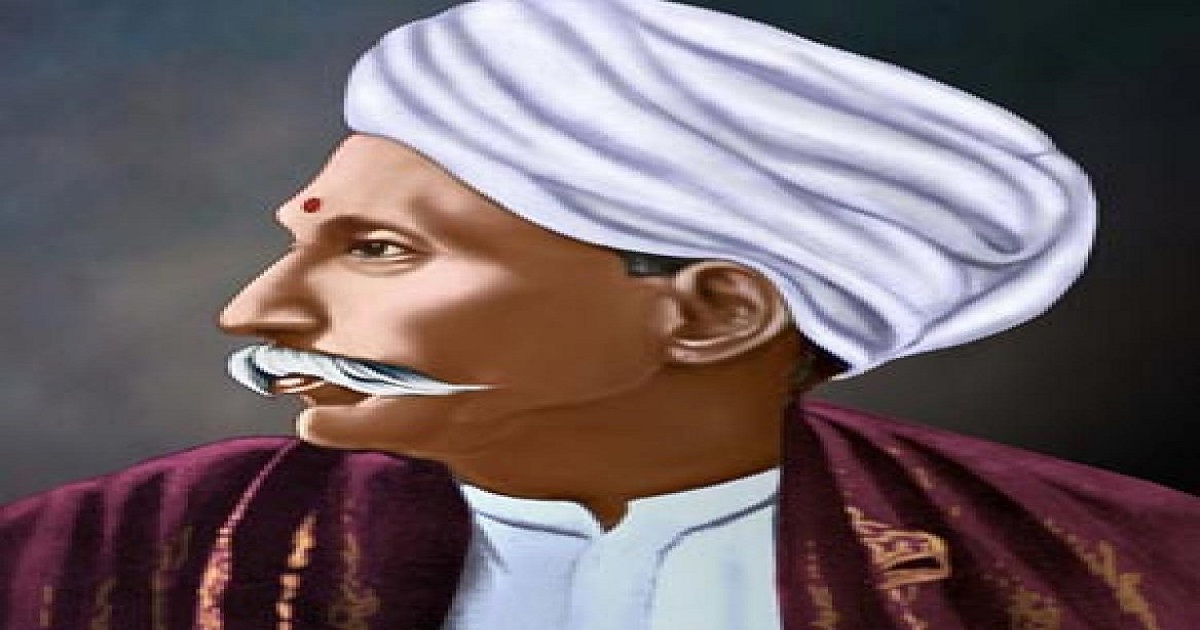Introduction
Gurajada Venkata Apparao stands as a towering figure in Telugu literature. His works, known for their pioneering spirit and profound social commentary, have left an indelible mark on Indian literary tradition. Through his unique style and thought-provoking narratives, Gurajada transformed the landscape of Telugu literature, making it more accessible and relevant to the common man.
Early Life and Background
Gurajada Venkata Apparao was born on September 21, 1862, in the village of Rayavaram in the Visakhapatnam district of Andhra Pradesh. Coming from a modest Brahmin family, Gurajada’s early life was steeped in the cultural and literary traditions of his region. His father, Venkata Rama Dasu, was a learned scholar who instilled in him a love for literature and the arts.
Educated at the prestigious Mrs. A.V.N. College in Visakhapatnam, Gurajada was deeply influenced by the Western literary canon as well as traditional Indian literature. This diverse education played a significant role in shaping his literary voice, allowing him to merge Eastern and Western literary traditions seamlessly.
Literary Contributions
Gurajada’s entry into the literary world was marked by his keen observation of societal issues and a desire to bring about change through his writings. His initial works often reflected the struggles and aspirations of the common people, a theme that would persist throughout his career.
As his writing evolved, Gurajada began to experiment with different forms and styles. He was a pioneer in using colloquial Telugu, making his works more relatable to everyday readers. This approach not only democratized literature but also enriched the Telugu language with new idiomatic expressions and conversational tones.
Prominent Works
Kanyasulkam
Perhaps the most celebrated of Gurajada’s works is the play “Kanyasulkam,” written in 1892. This satirical masterpiece delves into the social evils of the time, particularly the practice of dowry and the exploitation of women.
Plot Summary: The play revolves around the character of Gireesam, a cunning and opportunistic man who exploits the societal norms for his benefit. Through sharp wit and incisive dialogue, Gurajada exposes the hypocrisy and moral corruption prevalent in society.
Cultural and Social Impact: “Kanyasulkam” was revolutionary in its portrayal of women’s issues and its critique of societal norms. It stirred a wave of social consciousness and remains a critical piece in the discourse on gender and social justice in India.
Other Notable Works
- Poetry: Gurajada’s poetry, characterized by its lyrical beauty and emotional depth, often touched on themes of patriotism, nature, and human values. His poems like “Desamunu Preminchumanna” (“Love Your Country”) became rallying cries for nationalistic fervor.
- Essays: His essays were equally impactful, providing insightful commentary on various aspects of society, culture, and politics. Through these writings, Gurajada championed the cause of education and social reform.
Contribution to Telugu Theatre
Gurajada’s influence on Telugu theatre cannot be overstated. He introduced realism into the dramatic arts, moving away from mythological and historical themes to focus on contemporary social issues. This shift not only broadened the scope of Telugu theatre but also made it a powerful tool for social change.
His innovative use of stagecraft and dialogue brought a new dimension to theatre, making it more dynamic and engaging. The characters in his plays were well-rounded and relatable, often reflecting the complexities of real life.
Role as a Social Reformer
Beyond his literary contributions, Gurajada was a passionate social reformer. He used his writings as a platform to address various social issues, advocating for the upliftment of women and the eradication of oppressive practices like dowry.
Gurajada was also a strong proponent of education. He believed that education was the key to social progress and worked tirelessly to promote literacy and learning among the masses. His efforts in this area had a lasting impact, inspiring future generations to value education and social justice.
Language and Style
One of the hallmarks of Gurajada’s writing was his use of vernacular Telugu. At a time when classical Telugu was the norm, his decision to write in the language of the people was both bold and revolutionary. This choice made his works more accessible and resonant with the common man.
His stylistic elements included sharp wit, satire, and a deep sense of empathy for his characters. Gurajada’s narratives were often laced with humor and irony, making his social critiques more palatable and impactful.
Recognition and Awards
Gurajada’s contributions to literature and society were widely recognized during his lifetime and posthumously. He received numerous accolades, including honors from literary societies and cultural organizations. His legacy is celebrated through various awards and memorials in his name, ensuring that his contributions are remembered and revered.
Personal Life
Despite his public persona, Gurajada led a relatively private personal life. He was married and had children, but details about his family are scarce. His personal beliefs and values were deeply rooted in humanism and a desire for social equity, which were reflected in both his writings and his actions.
Influence on Future Generations
Gurajada was not only a literary giant but also a mentor to many young writers. His encouragement and guidance helped shape the careers of several prominent figures in Telugu literature. His influence extended beyond his contemporaries, inspiring future generations to embrace social consciousness in their works.
Gurajada’s Philosophy
Gurajada’s philosophy was grounded in a deep respect for human dignity and a commitment to social justice. He believed in the power of literature to bring about change and used his writings to challenge societal norms and advocate for a more equitable society.
Criticism and Controversies
Like any influential figure, Gurajada was not without his critics. Some of his works were considered controversial for their bold themes and candid portrayal of social issues. However, these criticisms only highlighted the significance of his contributions and the courage it took to address such topics.
Gurajada’s Impact on Modern Telugu Literature
The themes Gurajada explored in his works remain relevant today. Issues like gender equality, social justice, and education continue to resonate with modern audiences. His works have been adapted and reinterpreted in various forms, including films and stage productions, ensuring their continued relevance and appeal.
Memorials and Tributes
Gurajada’s legacy is honored through various memorials and tributes. Statues and memorials erected in his honor serve as reminders of his contributions to literature and society. Celebrations and festivals commemorate his life and works, ensuring that his legacy endures.
Conclusion
Gurajada Venkata Apparao’s contributions to Telugu literature and society are immeasurable. Through his pioneering works, he brought attention to pressing social issues and inspired generations to strive for a better, more just society. His legacy lives on, not only in the pages of his writings but also in the hearts and minds of those who continue to be inspired by his vision and courage.





















